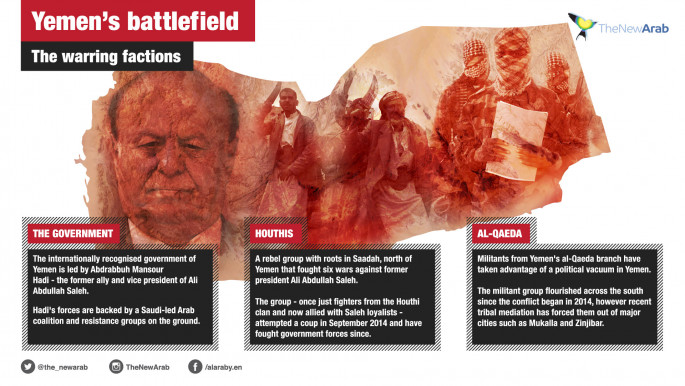Reconstruction of war-torn Yemen 'could cost $15 billion'
"The World Bank estimates... $15 billion," Abdulraqeb Saif Fateh, Yemen's minister of local administration, told AFP on the sidelines of a workshop on Yemen's post-war recovery.
He gave no details of what exactly the figure would cover but the war has left Yemenis suffering from shortages of food, water, sanitation and healthcare.
Fateh, who is also chairman of Yemen's High Relief Committee, spoke near the close of a two-day workshop on "post-conflict recovery and reconstruction" in Yemen.
The workshop was attended by international donors and organised by Yemen's government and the Gulf Cooperation Council.
The six-member GCC in December pledged a global conference on the reconstruction of Yemen after a political solution to the war is reached.
Yemen was already the Arab world's poorest country before March last year when a Saudi-led Arab coalition began air raids and later sent in ground forces to support its internationally recognised government. The coalition intervened after Houthi rebels and their allies overran much of the country.
Saudi Arabia says the rebels have received weapons from its regional rival Iran, a charge Tehran denies.
More than half of the 6,600 people killed in Yemen since March last year have been civilians, the UN says.
Last week the UN rights office warned that about 7.6 million people in Yemen were suffering from malnutrition, while at least three million had fled their homes.
 |
About 7.6 million people in Yemen are suffering from malnutrition, while at least three million have fled their homes |  |
 |
|
Violence has intensified since United Nations-brokered peace talks in Kuwait were suspended in early August.
Analysts expect no quick end to the war, despite the announcement last week by US Secretary of State John Kerry of a new peace initiative.
Fateh told reporters that it is "not easy to regain the trust" of donors after what has happened but the government pledges transparent and accountable programmes.
"The donors are ready but they are requesting a safe environment and that's their right," he said, adding that local partners and agencies are ready to do their part.
In May the UN's special envoy to Yemen, Ismail Ould Cheikh Ahmed, called for "an economic rescue authority" to save the Yemeni economy from further deterioration.
He said the consultative body would comprise experts proposed by Yemen's warring parties.
It would be backed by the UN, World Bank and others.
In comparison with the $15 billion figure cited by Fateh, World Bank assessments of damage to six war-damaged Syrian cities ranged up to $4.5 billion at the end of 2014.
The World Bank estimated that restoring Libya's infrastructure will cost an estimated $200 billion over 10 years.





 Follow the Middle East's top stories in English at The New Arab on Google News
Follow the Middle East's top stories in English at The New Arab on Google News


